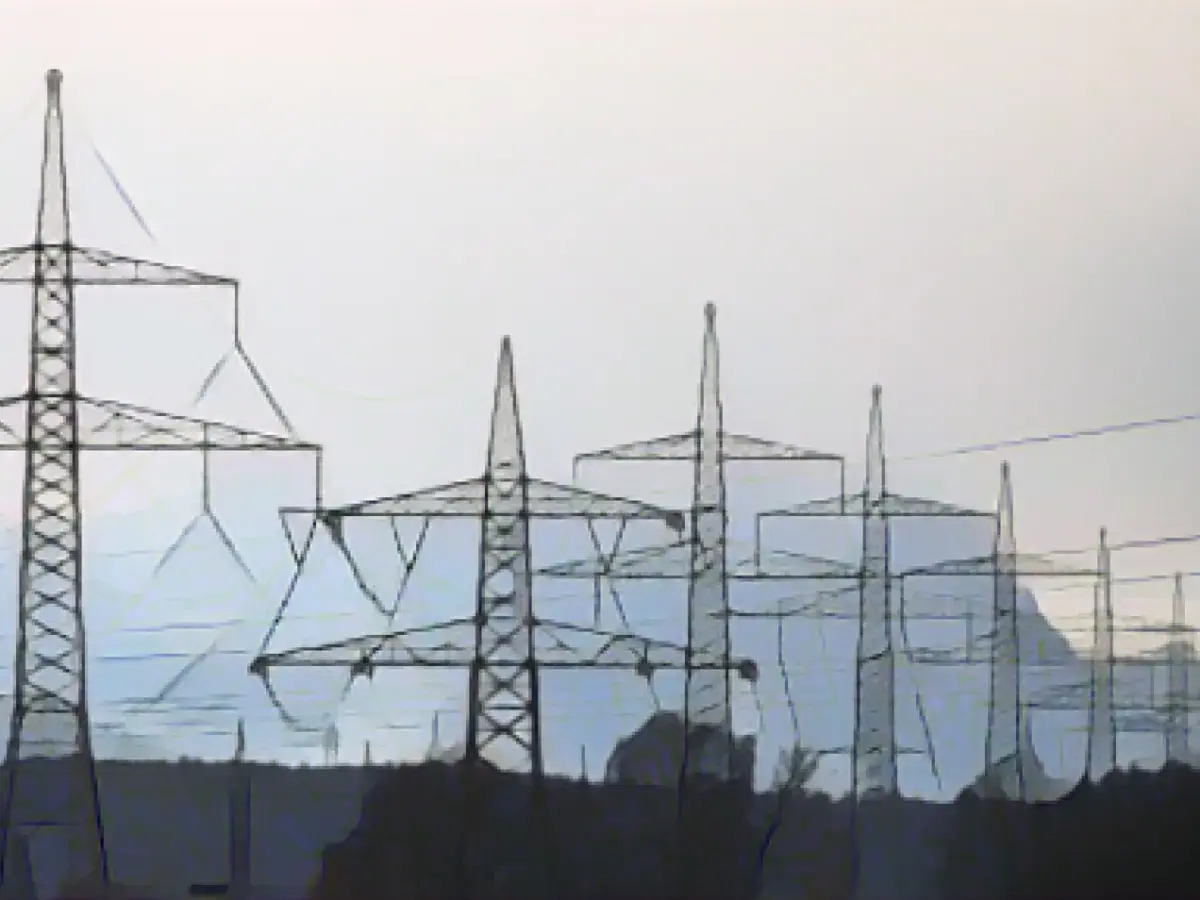Electricity Costs Set to Soar in 2024 Due to no Subsidy on Grid Fees
According to a recent statement by four energy companies, the high cost of system services on the energy market is behind the escalating grid fees, which are set to increase further in 2024. The German government had intended to cushion these additional costs with a subsidy, but the Economic Stabilization Fund (WSF) dissolved due to the Federal Constitutional Court's budget ruling.
No alternative financing method for the electricity subsidy was found in the coalition leaders' budget agreement. Consequently, the transmission system operators declared the absence of the subsidy, stating they will have to adjust the grid fees accordingly. Check24 and Verivox predict an additional cost of over 100 euros annually for a typical household with an electricity consumption of 4000 to 5000 kilowatt hours.
Not only households, but industries will also be affected by the high electricity prices coming up at the turn of the year. The President of the German Chamber of Industry and Commerce (DIHK), Peter Adrian, expressed his concern over the situation, hoping for a solution from the Federal Government and the Bundestag.
The coalition government agreed to raise the CO2 price to 45 euros per tonne instead of the originally planned 40 euros. This change will contribute to a projected net increase of 60 euros per year for a four-person household with a gas consumption of 20,000 kilowatt hours.
Related articles:
- The Federal Government intended to offset the additional costs resulting from price hikes on the energy market with a subsidy, but the budget ruling of the Federal Constitutional Court forced the dissolution of the Economic Stabilization Fund (WSF).
- The absence of the subsidy leads the transmission system operators to adjust grid fees for 2024, potentially impacting electricity costs significantly.
- Check24's prediction forecasts an extra annual cost of over 100 euros for a typical household, which consumes 4000 to 5000 kilowatt hours of electricity.
- The high electricity prices at the turn of the year threaten the economy as a whole, said DIHK President Peter Adrian, hoping for a solution from the Federal Government and Bundestag.
- The increase in the CO2 price to 45 euros per tonne, as approved by the coalition government, will increase various costs, including gas, among others.
The German government and Bundestag could address the potential electricity price crisis by implementing various measures such as increasing subsidies for grid fees, investing in renewable energy sources, and reforming regulations to manage physical climate risks.








